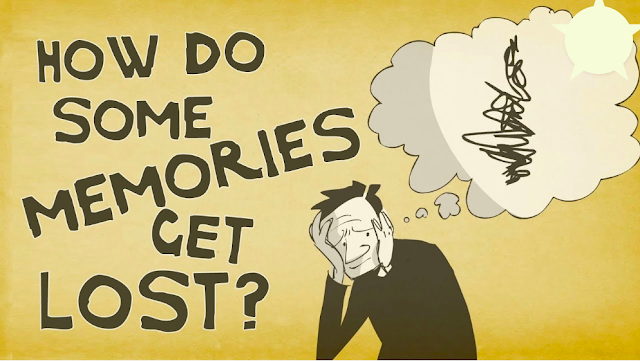Consider a really vivid recollection. Got it? Okay, now attempt to recall your lunch from three weeks ago.
1- Probably not as strong as the first recollection, but why not?
2- Why do we recall some things while forgetting others?
3- Why do memories gradually lose their sharpness?
Let’s examine the initial process of memory formation. When you do something, like as dial a phone number, your experience is transformed into an electrical pulse that travels through a network of neurons. First, information enters short-term memory, where it is accessible for anywhere between a few seconds and a few minutes. After that, it is sent to the hippocampus and other long-term memory locations before being stored in other brain areas.
At specific locations called synapses, neurons from all over the brain exchange information via specialised neurotransmitters. A surprising thing occurs when two neurons connect frequently: their communication becomes more effective. Long-term memory storage is thought to be accomplished through a process known as long-term potentiation, but how do some memories disappear? Age is one of them. Synapses start to deteriorate and falter as we age, which affects how quickly we can recall memories. Scientists have several hypotheses for the cause of this decline, ranging from actual brain shrinkage (the hippocampus loses 5% of its neurons on average every ten years, for a loss of 20% by the time you’re 80) to a decrease in the production of neurotransmitters like acetylcholine, which is essential for memory and learning. These adjustments appear to have an impact on how users access stored information. Our capacity for memory-making is likewise impacted by age.
When we are fully involved, paying attention, and receiving information that has personal significance to us, our memories are imprinted most effectively. As we get older, mental and physical health issues tend to get worse because they affect our ability to focus, which steals our memories. Chronic stress is another major factor in memory issues. Our bodies become hyperalert when we are continually overburdened with obligations both personal and professional. This reaction has developed from the physiological system put in place to ensure our survival in an emergency. Energy is mobilised and awareness is increased by stress hormones.
Chronic stress, on the other hand, causes our bodies to overproduce these chemicals, which damages our ability to retain new information by causing brain cells to die and prevent others from growing. An additional factor is depression. Memory issues are 40% more likely to develop in sad people. Serotonin, a neurotransmitter linked to arousal, is low in sad people, which may cause them to pay less attention to new information. Another sign of depression is the tendency to dwell on painful memories from the past, which impairs the capacity to focus in the present and short-term memory storage. Depression-related isolation is another memory thief. According to a Harvard School of Public Health study, memory loss was slower among older adults who had high levels of social integration during a six-year period.
Although the precise cause is still unknown, experts believe that social engagement exercises our brain. We must employ our brains or risk losing them, same to how strong muscles must be. But don’t give up. You can take a number of actions to help your brain keep your memories. Make sure to stay active physically. Blood flow to the brain should be increased. Additionally, make sure you eat well. To continue working properly, your brain has to be fed the essential nutrition. And lastly, exercise thinking. One of the best protections against memory loss is exposing your brain to difficulties, such as learning a new language.
Related Searches:
how memories form and how we lose them summary, how memories form and how we lose them transcript, how memories are formed, how are memories formed psychology, how are memories formed in the brain, how memory is made in computer, how are memories stored.
List of Tags:
Memory loss, Memory, Amnesia, Dementia, Alzheimer’s Disease (Disease Or Medical Condition), Remember, Neuroscience, Psychology, Short term memory, Long term memory, Hippocampus, Neuron, Synapse, Neurotransmitters, Learning, Age, Aging, Attention, Attentnion span, Stress, Chronic stress, Alertness, Depression, Mental health, Health, Nutrition, memory loss, memory loss treatment, memory loss test, memory loss depression, memory loss causes, memory loss symptoms, memory loss trauma, memory loss movies, memory loss disease, memory loss after stroke, memory loss bipolar, memory loss conditions, memory loss elderly, memory loss from trauma, memory loss from drinking, memory loss help, memory loss icd 10, memory loss in old age, memory loss is called, memory loss medication, memory loss medicine, memory loss old age, memory loss ptsd, memory loss.


